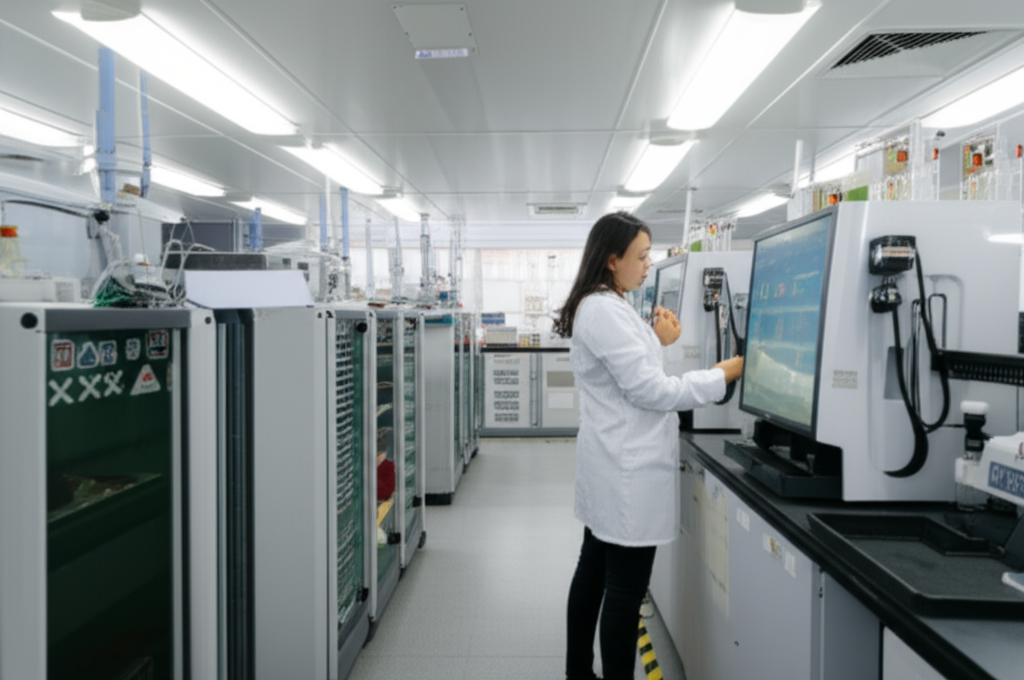Paper impregnation is a fundamental process in industries ranging from furniture and flooring to automotive interiors and decorative laminates. It involves saturating paper substrates with various resins to impart specific properties, such as durability, water resistance, and aesthetic appeal. While the process is critical, achieving a consistently high-quality surface finish presents ongoing challenges for manufacturers.
One of the primary difficulties encountered during the drying and curing stages of impregnated paper is the formation of surface defects. These can include bubbling, which, upon bursting, leads to undesirable dust particles settling on the surface. Such defects not only compromise the visual appeal of the final product but also necessitate costly rework and can impact manufacturing efficiency and yield. Furthermore, achieving a uniformly high level of gloss and a perfectly smooth film surface is paramount for meeting stringent quality standards and customer expectations in competitive markets.
Addressing these challenges requires specialized chemical auxiliaries that are specifically engineered to intervene during the critical stages of the impregnation process. Among these, liquid additives designed for surface modification play a crucial role. These agents work at a microscopic level to influence the behavior of the resin and the paper substrate, preventing the formation of imperfections and promoting desired surface characteristics.
A key function of such an additive is its ability to act as an anti-dust agent. By mitigating the formation of bubbles within the resin layer as it dries, the primary source of processing dust is eliminated. When bubbles are suppressed, they do not rise to the surface and burst, preventing the release of fine particles that can adhere to the curing film. This reduction in dust is essential for both maintaining a clean working environment and ensuring the integrity of the final surface.

Beyond simply preventing dust, these advanced liquid agents also contribute significantly to film smoothing. A surface free from bubble-induced imperfections is inherently smoother. The additive helps to create a more uniform tension and flow within the resin film as it cures, allowing it to level out effectively. This results in a more consistent, even surface that feels smooth to the touch and provides an excellent base for subsequent processing or direct use.
The culmination of reduced dust and improved film smoothing is a dramatic enhancement in gloss. Gloss is essentially a measure of how effectively a surface reflects light. A smooth, defect-free surface allows light to reflect uniformly, resulting in a high-gloss appearance. Conversely, rough or dusty surfaces scatter light, leading to a dull or matte finish. Therefore, by creating an optimal surface structure, these liquid additives directly contribute to achieving superior gloss levels, significantly enhancing the aesthetic value of the impregnated paper.
These liquid additives are typically formulated to be highly concentrated, offering potent performance at low addition rates. This concentration makes them cost-effective and easy to incorporate into existing resin formulations and impregnation lines. Their liquid form ensures ease of handling, dosing, and dispersion within the resin bath, leading to consistent results across large production batches. The versatility of these agents means they are compatible with a wide range of resin systems commonly used in paper impregnation, including melamine-formaldehyde and urea-formaldehyde resins, making them suitable for diverse applications.
For manufacturers, incorporating such a high-performance liquid gloss agent translates into tangible benefits. Improved product quality leads to fewer rejects and less need for rework, boosting production efficiency and reducing material waste. Consistent surface finish and gloss levels help build a reputation for quality and reliability. For the end-users of products made with this impregnated paper, the benefits are equally clear: more durable, aesthetically pleasing surfaces that are less prone to collecting dust and maintain their visual appeal over time.
Sourcing high-quality raw materials is a critical step for any manufacturer aiming for excellence. Choosing a reliable manufacturer of chemical additives ensures consistency in performance and supply. Experienced suppliers understand the nuances of paper impregnation processes and can offer products specifically tailored to meet demanding requirements. When considering new additives, inquiring about the product specifications and typical dosage is essential. Understanding the typical price per kilogram or per unit volume is also a key factor in evaluating cost-effectiveness.
For companies looking to buy or purchase such a liquid additive, engaging with knowledgeable suppliers is crucial. They can provide technical data, samples for testing, and guidance on integration into existing processes. The decision to invest in a premium gloss-improving, anti-dust, and film-smoothing agent is an investment in the quality, efficiency, and market appeal of the final impregnated paper product. Selecting a trusted partner who can consistently supply these vital chemical components is paramount for sustained success in the industry.
In summary, advanced liquid additives are indispensable tools for enhancing the quality of impregnated paper. By effectively preventing dust, promoting film smoothness, and boosting gloss, they help manufacturers overcome common production challenges and deliver superior products. Companies focused on producing high-quality impregnated paper should explore the benefits offered by these specialized chemical agents to stay ahead in a competitive market.
Manufacturing Facilities






Professional Export Experience
to Global Customers

1. 20 years of R&D, manufacturing and sales experience, serving customers in 60 countries and regions around the world;
2. Own R&D laboratory, pilot platform and large-scale production workshop, which can meet the audit requirements of global customers;
3. We can satisfy customers' perfect transition from small scale lab requirements (gram level) to commercialization requirements (hundred tons level).
A: We don't have Minimum Order Quantity, exact quantity should be provided before quotation for us to calculate the exact cost.
A: We don't provide free samples due to lots of request and expensive international courier's cost, we can deduct the sample charge after commercial order placed.
A: Our payment terms: Small or sample order: T/T IN ADVANCE. Commercial order: First order should be by T/T IN ADVANCE or L/C at sight, and following orders T/T 30~90days is acceptable subject to approval of credit application.